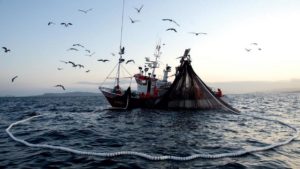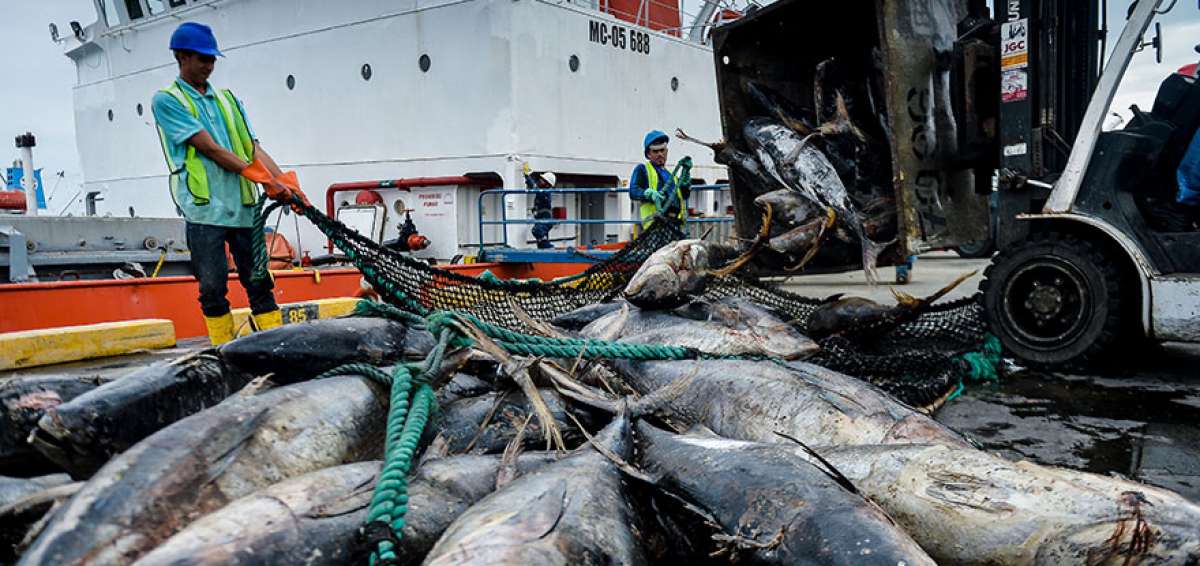Following two decades of failed negotiations, the 164 member countries of the World Trade Organization (WTO) have reached an agreement that seeks to curbillegal, unregulated, and unreported (IUU) fishing and help recover the ocean’s biodiversity. The multilateral fisheries subsidies agreement was signed June 17, at the WTO’s 12th Ministerial Conference.
“The binding agreement could help withcompliance with these issues, which in countries [affected] would mean greater commitments, greater advantages forcooperation, but also greater structures for follow-up or monitoring, control and surveillance and, of course, sanctions,”Xavier Chalén, director of the Marine and Coastal Program at the nongovernmental organization (NGO) Conservation International Ecuador, told Diálogo.
“This is a crucial step to ensure the sustainability of fisheries resources in the short, medium, and long term,” Gladys Martínez de Lemos, executive director of the Interamerican Association for Environmental Defense (AIDA), wrote on the NGO’s website. “We urge WTO member countries to ratify the agreement as soon as possible […].”
Harmful subsidies
One of the world’s leading fishing nations that uses million-dollar subsidies to exploit its own and other nations’ waters is China, which provides harmful fishing subsidies to the tune of about $6 billion, reported U.S.-based environmental news site Mongabay.
China carries out IUU fishing operations with its extensive distant water fishing fleet, which, with nearly 800,000 vessels, is the largest in the world. These vessels show upoff the West African coast, in South American waters, and near the Korean peninsula, employing bad practices and destroying marine ecosystems, according to the U.S.-based research organization American Security Project.
Ecuador’s Ministry of Foreign Affairs reported on June 2 that, in recent weeks, several Chinese vessels have arrived near its exclusive economic zone (EEZ) to the southwest of the Galápagos Islands, to fish for giant squid. The reoccurring presence of the Asian fishing fleet also creates unease in other countries of the region, such as Chile and Peru, Ecuadorian newspaper Primiciasreported.
“Countries invest a lot in good management, care of protected marinas; many of these [marine] resources have no border, that’s where the problem is,” Chalén said. “There is a lack of an adequate legal framework to regulate the use of these resources beyond the EEZs, where there’s an uneven playing field.”

IUU fishing represents an estimated 20 percent of global annual catches. In Latin America, that figure could be even higher, reaching close to 50 percent in countries such as Mexico, Insight Crime, aninternational organization dedicated to the study of organized crime in Latin America and the Caribbean, indicated. The Chinese fleet, the organization added, specializes in trawling, just within the limits of the 200 nautical mile EEZs of Latin American countries.
Important areas
The WTO agreement provides that no member shall grant or maintain any subsidyto a vessel engaged in IUU fishing or related activities. China has been a member of the WTO since December 2001.
In addition, when a port state member notifies a subsidizing member that it has reasonable grounds to believe that a vessel in one of its ports has engaged in IUU fishing, the subsidizing member must take into account the information received and take action as deemed appropriate.
The agreement also prohibits members from granting or maintaining subsidies that support the fishing of overfished stocks, as well as fishing-related activities outside of the jurisdiction of a coastal member or a coastal non-member.
Sustainability
On June 27, U.S. President Joe Biden signed a national security memorandum to combat illegal fishing as part of efforts to help countries combat violations by fishing fleets such as those of China. The White House said in a statement that it will also launch a cooperative project with Canada and the United Kingdom to “take urgent action” to improve monitoring, control, and surveillance in the fight against IUU fishing.
In addition, as part of the international commitment to prevent and deter IUU fishing, Ecuador, Colombia, Costa Rica,Panama, and the United States, signed a memorandum of understanding on June 7 to effectively conserve and protect at least 30 percent of the global ocean by 2030, the U.S. State Department said in a statement.
“It is time for the world to sit down and think about a planet where […], if we don’t achieve sustainability, then there will be none for those who hold wealth in their hands, and worse for those who survive on the livelihood that fishing and sea resourcesprovide,” Chalén concluded.









